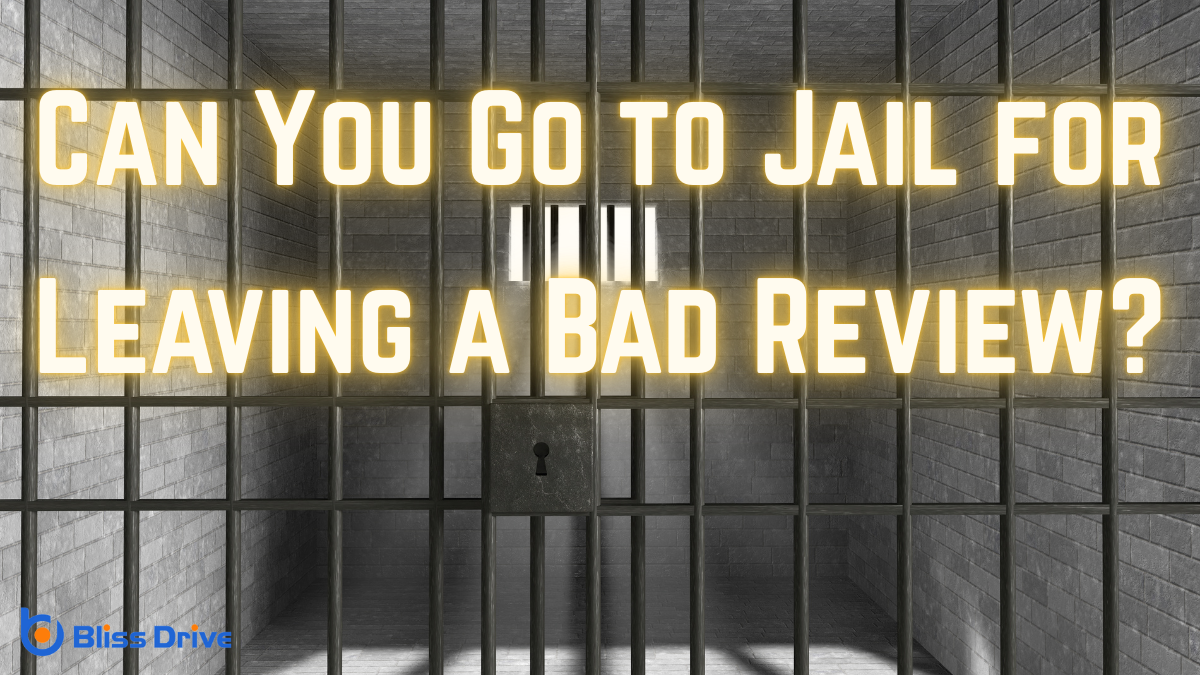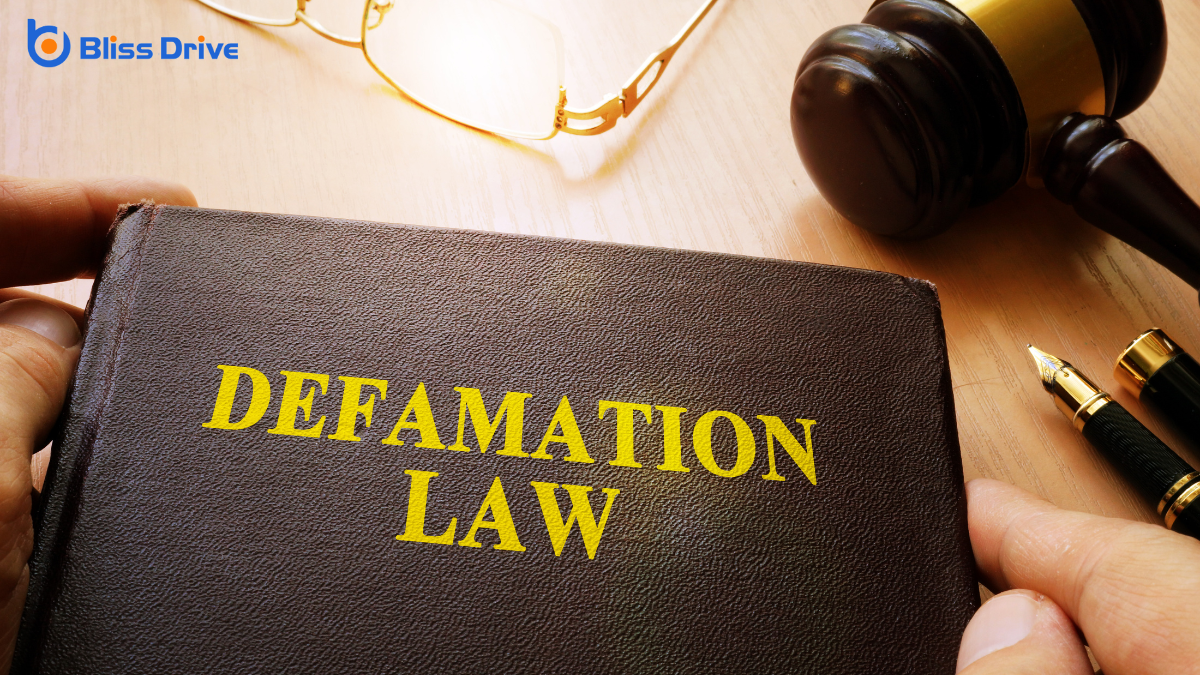Learn More About Us

I've often wondered about the consequences of leaving a bad review online. Could it really leadA potential customer referred by an affiliate who has shown interest in the product or service but h... to jail time? While it's unlikely to end up behind bars, there are legal implications to take into account, especially when it comes to defamation. It's a fine line between sharing honest experiences and crossing into harmful territory. Curious about how your words could impact more than just a business’s rating? There's more to explore in this intriguing intersection of law and online expression.
When exactly do online reviews cross the line into legal trouble? I often wonder about this myself, especially when considering how freely people express opinions online.
It’s essential to remember that while sharing honest experiences is generally protected, there are boundaries. For instance, reviews that include false statements, threats, or illegal activities might expose one to legal risk.
The key is to stick to the truth and avoid exaggeration. I’ve noticed that many people don’t realize that even online, words have power and consequences.
It’s not just about voicing dissatisfaction; it’s about ensuring accuracy and fairness. So, while venting frustrations can feel good, it’s important to remain factual and respectful to avoid any potential legal issues.

When I think about leaving a review, I always consider the line between sharing my opinion and making a false factual claim.
Understanding defamation and libel is essential because crossing that line can lead to serious legal consequences.
It's important to know how to protect my speech rights while ensuring that what I say doesn't unfairly harm someone else's reputation.
Although expressing an honest opinion online seems like a straightforward act, it's essential to understand the thin line between a bad review and defamation. If your review contains false statements that harm a business's reputation, it could be considered defamation.
Legal consequences might include being sued for damages, which could cost you money. While jail time for defamation is rare, the financial and emotional toll of a lawsuit is significant.
I learned that defamation laws vary by location, and what might be acceptable in one place could be illegal in another. Before posting, I must verify my statements are truthful and factual.
It's wise to remember that while I've the right to voice my opinions, I must do so responsibly.
Understanding the difference between opinion and fact is essential in the context of defamation and libel. When I leave a review, I need to be cautious about how I express my thoughts.
Opinions are personal views or beliefs and can't be proven true or false. For example, saying "I didn't enjoy the meal" is an opinion.
Facts, however, are statements that can be verified. Claiming "the restaurant had rats" without evidence could lead to legal trouble if false.
If I cross the line from opinion to unsubstantiated claims, I might face defamation accusations. It's vital to distinguish between what I believe and what I can prove, as this helps protect me from potential legal issues while expressing my views.
Knowing the difference between opinion and fact is just one part of the puzzle.
When it comes to protecting speech rights, understanding defamation and libel is essential. If you post a bad review, you might worry about legal consequences. But, if your review is based on truthful experiences and opinions, you're generally protected.
Defamation involves making false statements that harm someone's reputation. Libel is defamation in written form.
To be considered libelous, a statement must be false, damaging, and made with negligence or malicious intent.
When looking into cases where reviews have led to legal action, it's clear that the line between free speech and defamation can be thin.
I've come across a few intriguing examples where this boundary was tested.
Here's a quick rundown to help you understand how things can unfold:
These cases remind us to tread carefully.
When I leave an online review, I often wonder where free speech ends and legal issues begin.
It's essential to understand our rights to express opinions while also recognizing the boundaries set by defamation laws.
Let's explore how these legal and expression rights intersect in the world of online critiques.
While the internet provides a platform for sharing opinions, it’s vital to understand the legal boundaries of critiques, especially when it comes to free speech.
I'm sure you value your right to express yourself, but it’s important to know when a review can cross the line into legal trouble. Here's what to keep in mind:
Understanding these boundaries helps protect your rights while respecting others.
Expressing opinions online is a fundamental aspect of free speech, yet it's essential to navigate this freedom responsibly. When I voice my thoughts through reviews, I remember that my words carry weight.
It's tempting to release my frustrations, but I endeavor to balance honesty with respect. Free speech isn't just about speaking freely; it's about understanding the impact of my words on others.
I also realize that while I've the right to express opinions, I must avoid crossing lines into defamation or false statements. Constructive criticism is key.
Sharing experiences honestly and accurately helps others make informed choices without causing undue harm. Embracing my rights responsibly guarantees that online platforms remain spaces where diverse voices contribute meaningfully.

Although negative reviews can feel personal, it's essential for businesses to approach them strategically and constructively. Trust me, it's not just about defending your reputation but also about learning and improving.
Here's how you can respond effectively:
Steering through the world of online reviews can feel like a minefield, but safeguarding your reviews from legal risks is vital. I get it—sharing your experiences helps others make informed choices, but it’s essential to protect yourself legally.
First, always stick to the truth. Honesty is your best defense against potential defamation claims. If you ever find yourself unsure, check facts before posting.
Also, be aware of the terms of service on review platforms. Violating them could lead to your review being removed or, worse, legal action.
Don’t forget, some businesses use contracts that restrict negative reviews; be cautious about what you sign.
Maneuvering the world of reviews requires a balance between honesty and tact, especially to avoid legal pitfalls.
I’ve learned a few strategies to keep my reviews both constructive and lawful. These tips help me express my opinions clearly and respectfully:
Using these tips, I maintain integrity and avoid unnecessary trouble.
To sum up, while you might worry about legal repercussions for leaving a bad review, jail time is highly unlikely. Focus on sharing honest, factual experiences and steer clear of exaggerations. Remember, free speech protects your opinions, but accuracy is key. By adhering to platform guidelines and understanding local laws, you can express your views safely. So, go ahead and share your experiences, but do it thoughtfully and responsibly to avoid potential legal issues.
